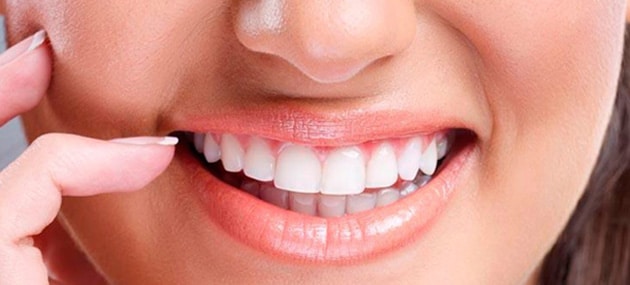Can Sensitive Gums Get in the Way of Teeth Whitening?
Teeth whitening is such a popular procedure today that countless products and services have arisen to support what is now a $3.2 billion industry. In fact, when the American Academy of Cosmetic Dentistry surveyed people to find out about their number one appearance goal, the majority of respondents said “tooth whitening.”
Yet many patients who could benefit from teeth whitening are hesitant because of reports that it can cause gum sensitivity and discomfort. Even for patients who proceed with teeth whitening, worry about possible gum sensitivity can cause stress and anxiety.
Can gum sensitivity interfere with the results of your tooth whitening procedure? Will your gum sensitivity cause any discomfort during or after your teeth whitening? Let’s find out!
Contents
What is Gum Sensitivity?
The first thing to know is that there is a difference between sensitive gums and sensitive teeth, even though some of the symptoms can feel quite similar.
Sensitive gums
Gum tissue can become sensitive because of trauma, injury, inflammation (gingivitis), infection (periodontal disease) and similar causes. Gums can also be injured by exposure to toxins or harsh substances (such as whitening bleaches) and by overly harsh brushing and flossing.
Gum bleeding, tenderness, acute pain and similar symptoms are common symptoms that people with sensitive gums experience.
Sensitive teeth
When the teeth become injured, sensitivity is one warning sign. Infection that invades the tooth to create dental caries (cavities) can cause tooth sensitivity. Cracks, fractures, worn enamel, exposed roots, a receding gum-line, and similar injuries can lead to tooth sensitivity.
Teeth can also be injured by exposure to harsh substances (such as tooth whitening bleaches) and by overly vigorous brushing and flossing. Abuse of mouth rinses can sometimes also lead to tooth sensitivity.
Will Sensitive Gums Interfere with Teeth Whitening?
One of the most common issues many teeth whitening patients experience with over-the-counter or at-home teeth whitening products is gum sensitivity. The good news here is that gum sensitivity typically will not interfere with teeth whitening – so long as you can tolerate the process of having your teeth whitened.
The main reason teeth whitening causes temporary gum sensitivity relates to how the teeth whitening bleach is applied. When the whitening bleach makes contact with the delicate dentin that lies underneath the tooth enamel (the hard outer layer that often becomes discolored over time) and the gums, sensitivity is often the result.
Like the gums, the dentin layer within each tooth has a direct connection with the tiny blood vessels and nerves that keep each tooth alive. It is very sensitive to heat, cold, pressure and harsh agents like tooth bleaches.
Each patient’s risk of experiencing gum sensitivity during or after a teeth whitening procedure is different. The risk relates to the condition of your teeth enamel and gums. Strong healthy teeth with good, thick enamel and healthy gums will be more likely to protect you from whitening-related sensitivity symptoms.
Having your teeth whitened by a dental professional can reduce your risk still further. In-office teeth whitening makes use of special gum guards to help keep the solution from making contact with your gums.
Use of special lasers or lights can also help speed up the whitening process and reduce the risk of any of the bleach solution reaching your gums.
Should You Do Teeth Whitening if You Have Sensitive Gums?
Having issues with sensitive gums should not rule you out as a candidate for teeth whitening. However, if sensitive gums cause you great discomfort, you may want to prepare by following a de-sensitization protocol before having tooth whitening and opting to have certain types of teeth whitening procedures to further reduce sensitivity risk.
You can use special toothpaste and mouth rinses to slowly desensitize gums and teeth and help you get ready for tooth whitening.
As WebMD points out, opting for an in-office teeth whitening procedure can also further reduce your risk of experiencing tooth or gum sensitivity, since your dentist will personally oversee the application of the bleach.
It is much easier to avoid contact that could cause sensitivity when you are not trying to apply the solution yourself at home. Customized teeth molds for the at-home application also reduces gum sensitivity.
Yet another option is to have Dr. Lazare create customized teeth molds that fit your teeth exactly. You can then use these molds at home with special teeth whitening products provided by Dr. Lazare to gradually whiten your teeth over a couple days.
With careful and proper application, gum sensitivity is typically temporary.
The American Dental Association points out that gum sensitivity and inflammation are typically quite temporary and will subside after treatment concludes.
Study results published by the Journal of Evidence-Based Dental Practices points out that aggressive application of teeth whitening products has been shown to cause increased gum sensitivity. The antidote is to opt for shorter treatment applications with some space in between reduces gum sensitivity even further.

4 thoughts on “Can Sensitive Gums Get in the Way of Teeth Whitening?”